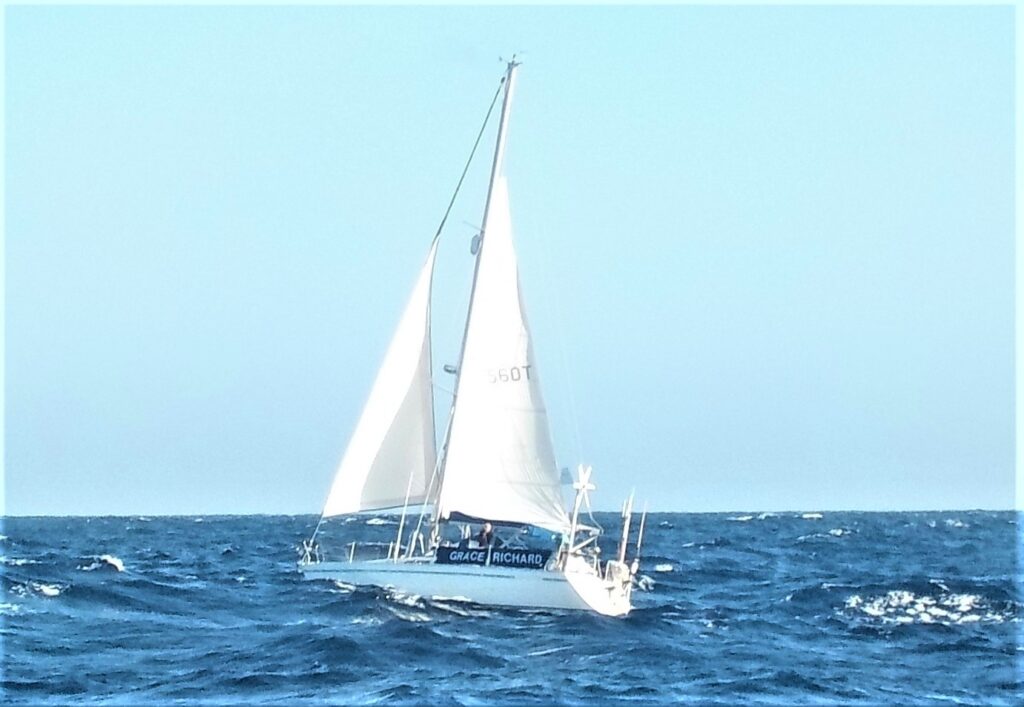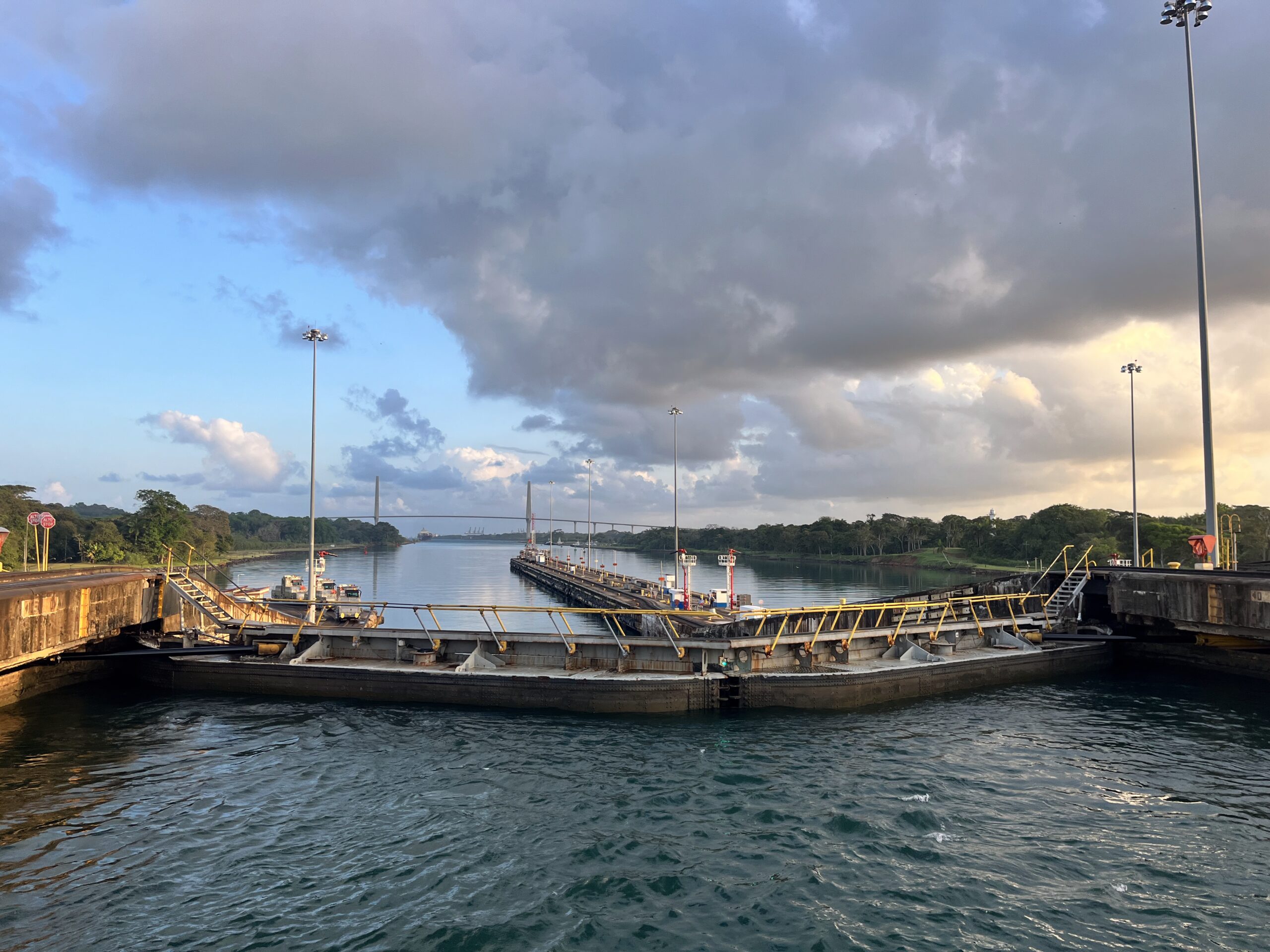Just starting your journey to become a liveaboard sailor? Here are some handy tips, from someone who has been there, done it and spent way, way too much money on the T-shirt:
1. Buy the right boat for you
Buy the boat you need, not what you want. Cruising is a different business from racing or weekending.
Buying the biggest boat you can afford seems like a good option. But can you afford the maintenance, marina fees. Can you handle it in any conditions short-handed when you are not feeling very well ? Does it have a really spacious place to call your bedroom. Give careful consideration to what you (and your crew) need to live comforably in a relatively small space.
Think very carefully about all this. I was lucky, but I have met people who bought the wrong “dream” boat and it turned into a nightmare.
2. Connect with other owners
Whatever boat you buy or are thinking of buying you should consider the owners’ association, or perhaps an owners group on Facebook or noforeignland.com. There you will find a complete font of knowledge from people who know your boat intimately and will be delighted to help with any problem or query, from mast cap to keel. They will understand there is no such thing as a stupid question, because they have been there.
3. Spend carefully
When buying the boat of your dreams, it all looks perfect when it belongs to someone else. Then once you have handed over the money and it is yours, suddenly lots of work seems to need doing.
Experienced owners know that when you buy a yacht you are only making a down payment, and in no time you will have a mountain of cash maintaining it.
My advice is: don’t spend anything yet! If your new yacht floats, the sails can be raised and lowered, the engine works and you can establish your position, you don’t need anything more – for now.
Resist the temptation to spend oodles on what you think you need. Sail your boat for a few months, try everything out. And as you go start compiling a list of what you actually need, not what you think you need.
As an example my boat seemed to have a spaghetti of electrical cables strewn everywhere. I asked an engineer to ‘take a look’ at the electrics. A four figure sum later it all looked the same, everything still worked but apparently we are now OK.

Whether it is new new rigging, coppercoat, a water maker, air con, lithium batteries, or small ticket stuff like LEDs or running rigging, hang fire and just get used to your new home. You won’t spend any less, but might just spend it better.
4. Make it your home
This boat is going to be your home. You are not camping. Throw out anything in the galley made of melamine. Go to a charity shop and buy proper glass glasswear. Buy a set of china made of china. Chuck out plastic cutlery and buy metal.
You may be surprised how resilient such delicate stuff is. The only time glassware is broken on my boat is when I am tied up or extremely well fed and watered guests are on board. I was once on a very posh boat with very posh occupants, which offered dog bowls to eat from in bad weather. Suffice to say I declined staying for dinner.
5. Sleep comfortably
And so to bed. Again, this is not camping. Get a memory foam mattress. Plenty of companies will make to measure to fit your bed.
6. Cook efficiently
These days boats are increasingly solar powered, and some now come complete with an all-electric galley. We cannot all aspire to such luxuries though.
My galley is gas-powered so energy is finite. One of the best energy-saving devices I’ve found is a pressure cooker. They are safe and reliable these days and cook food in a fraction of the time: pasta in three minutes, rice in five, pulses very rapidly, and stews in no time at all. I use it for reheating pre-cooked meals too.
7. Staying in touch
When cruising you meet loads of brilliant people. Lifelong friends. But you may end up thousands of miles apart, only to one day find you are berthed in the same marina.
I remember people long after I have forgotten the place where I met them. It really helps if you have a card so all your details are passed on easily, so have a business-style boat card made to give to friends.
Better still, encourage them to sign up to noforeignland.com and register their boat so you can follow one-another. Once followed, you will be notified whenever they are near by, so you’ll never miss a chance to meet up again.
8. Using payment cards
Money: we all need it. If you are travelling through different countries, continually spending in different currencies, it can quickly become very expensive.
Very often bank cards have hidden fees, transaction charges, as well as simply offering a near-criminal exchange rate. It is one thing to use your bank credit or debit card for a couple of weeks on holiday. When you cruise it is different. You are talking years of transactions and that really adds up.
Look at getting a currency exchange account which comes with a card. There are plenty to choose from. I use Wise and have found it very good. This is not a recommendation but merely an example.
9. Accessing cash
Still on the subject of money: beware the ATM.
Stand alone, third party, ATMs often charge exorbitant rates to the extent that their logo should include a highway robber on it. Always try to use an ATM attached to a physical bank. Their charges are likely to be less akin to a mugging and if it should refuse to give you back your card, you can simply walk in and ask to have it back.
Another downside is that if an ATM should swallow your card, the chances of retrieving in a country with a near-extinct language are vanishingly small. It’s a good idea to carry a spare card and to have accounts at multiple banks. In some parts of the world, a card you’ve used all year might be suddenly refused if your bank changes policy, so it’s reassuring to have an alternative to fallback on.
10. Enjoy it!
Articles like this always seem to have ten points. I almost run out at nine, but remebered to say don’t lose sight of the fact that boating should be fun. I wish you the very best of luck and leave you with two oft-quoted epithets:
The definition of cruising is maintaining a boat in glamorous places.
The two best days in a sailor’s life is the day they buy a boat, and the day they sell it.
You have been warned 🙂
Safe sailing.
Mark Prior is an ex-journalist, professional seaman and businessman. He has lived aboard his Moody 376 Grace Richard since 2014. He has completed four Atlantic crossings, two of them single-handed, and is currently cruising the Mediterranean.





Thanks Mark,
As a first time boat owner and new cruiser I really enjoyed your article and am glad to see we haphazardly followed a lot of your sage advice!
Cheers
Deb
SY GALENE
Glad you enjoyed it.
excellent article
Very good information. Thank you, Mark!